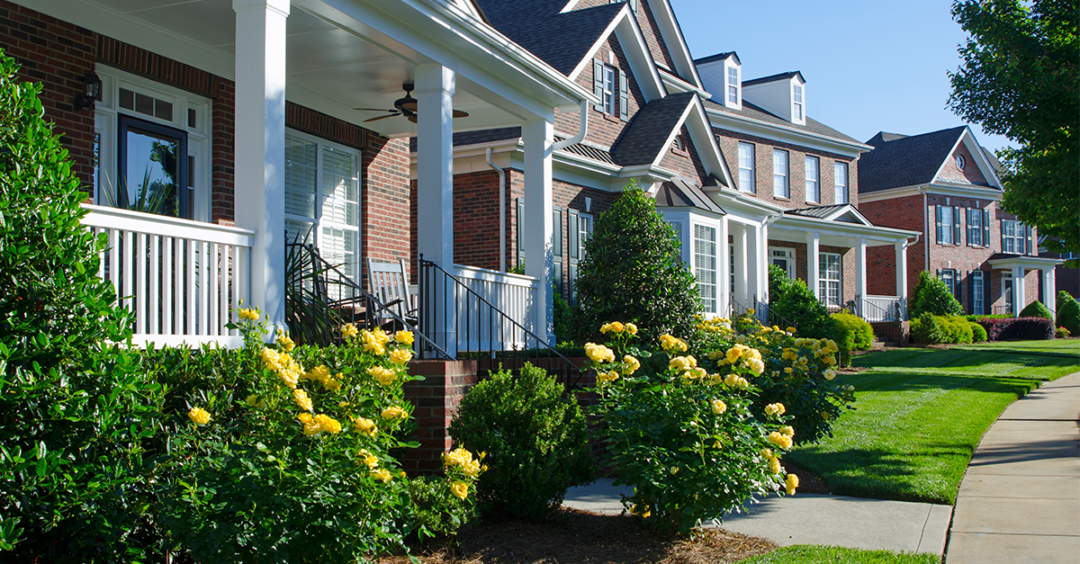 The answer is to a degree, but not entirely.
The answer is to a degree, but not entirely.
To clarify my explanations below, when I refer to seniors I am talking about the generation that are mid-70s and older. Baby Boomers are those in the 52-71 age range.
- New England is a bit unique in that people here, particularly the older generation, tend to stay put for many, many years. I specialize in selling homes of seniors and selling estate homes. It is extremely rare to find an older home owner who willingly leaves their home. If they move it is because their children have decided it is too dangerous for them to stay in the house alone. You don’t know how many times I have heard some variation of “they are taking me out of here feet first, my children will be selling the house after I die.”
- In the big picture, they don’t think it makes sense for them to sell. One issue is that the value of homes in the greater Boston area has risen so much that if someone who has been in their house for 30,40,50 years sells, they would far surpass the $250K profit limit ($500K for a couple) at which point they would have to pay capital gains taxes. If they keep the house until they pass and leave it to their children, then the basis value of the home resets to whatever the market value is when they died.
- Another issue is that there are very few choices for downsizing. If they are not leaving the state for a warmer climate, most seniors want to stay in the same town to be near their friends, neighbors, doctors, etc. Most of the towns outside of Boston don’t have enough inventory of affordable housing for seniors. Boomers can’t go far because they are still working and need to be near their jobs. All of this is compounded by the fact that demand is pushing up the price of houses on the lower end of the market, but not pushing up the price of the seniors’ larger houses commensurately. I’ll use Newton as an example. In Newton, a 2000sf 3-bed, 2-bath house in good condition might sell for anywhere in the $900K-$1.3m price range. The home of a senior that might be in the 3,000-6,000sf range might sell for $1.5m-$1.6m. Why is that? Because if a younger person is going to buy a house of that size, they want a new one. They realize the older homes cost more to maintain, heat, etc. So particularly, Boomers who are working an can afford their homes, figure they may as well stay put.
- Boomers are uniquely nostalgic and resistant to change of their towns. Perhaps because our childhoods were at a time of prosperity for most American families and a time of suburban living with a lot of other children to play with. The greatest resistance to change appears to come from this generation. If builders knock down old run-down homes to build the new, big homes we complain that the city is becoming gentrified. Or we complain that these houses are not in keeping with the old Ranches, Capes and Split-Entries that proliferated after WWII. If the city tries to build a higher concentration of affordable rentals, we complain it will bring crime to the city or bring people who are taking resources without contributing. It doesn’t take a genius to figure out that if no new inventory is being added and seniors and Boomers aren’t leaving, there will be a inventory shortage. Think of it like a revolving door and we are the ones with our foot in the door, blocking everyone behind us from moving forward.
While Boomers might be contributing, we are not entirely responsible for the shortage. Boston is an area fortunate to be flux with high-paying jobs, but with no land left for housing developments. And we are certainly not responsible for the massive influx of foreign nationals buying homes here – with cash in their pocket and the ability to outbid most other home buyers, pushing prices up. These people are coming here because of the great schools, the strong job market, and the stable housing market. Several things could happen to change this in the future, but that is discussion for a future post. In the end, it still comes back to the fact that there s no room here to build more inventory unless we build up or in a higher concentration.
It will be interesting to see what changes the future will bring – perhaps builders will find a way to build large, over 55 communities in or close to the city. Or they will build houses that will appeal to Boomers who want a big entertaining area, but don’t need or want to pay for 5 bedrooms and 5 bathrooms. Right now though, there is no profit for builders in creating smaller homes.
One change we all need to watch out for is inflation and rising interest rates. If Trump succeeds in taxing everything coming into the country and bringing jobs here at a higher pay scale, inflation will follow. Which is then followed by rising interest rates. That could have a slowing affect on home purchases, particularly at the entry level.
I’ll expand more on these last few points in future posts as economic events unfold.



No Comments